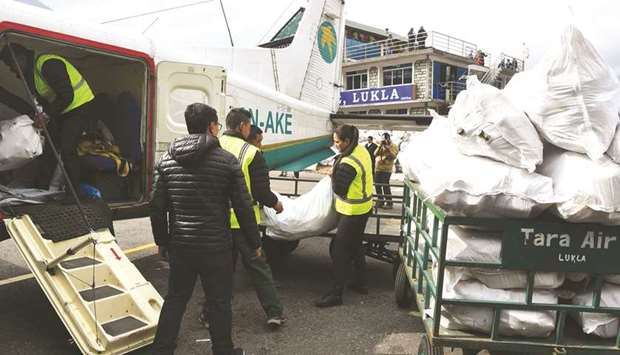Mount Everest, once negatively recognised as “world’s highest junkyard” is set to become cleaner as 30,000 porters have been mobilised for waste collection and disposal from the mountain’s southern side.
The clean-up drive was launched recently near Lukla Airport, one of the world’s most dangerous airport, yet a vital gateway to the world’s highest peak.
“Our major task is to keep Mt Everest, which is the pride of the world, clean. This campaign aims to transport 100 tonnes of non-burnable garbage from the Everest region to Kathmandu in 2018,” said Ang Dorje Sherpa, chairman, Sagarmatha Pollution Control Committee (SPCC).
SPCC, an environmental conservation organisation, has made it mandatory since 2013 that every climber should carry down 8kg of trash, but for trekkers there is no such regulation. Due to this, more than 100 tonnes of waste gets collected in the region annually.
According to Nepalese government statistics, nearly 50,000 domestic and foreign trekkers visit the Mt Everest region annually while over 400 mountaineers attempt to scale the mountain’s peak.
The collected waste mostly includes empty beer bottles and cans, oxygen bottles, torn tents and sleeping bags, food bins, discarded mountaineering and trekking equipment.
The trash was collected by different local groups in more than a dozen villages while the waste was transported down the mountain in sacks by porters and yak-hybrid animals known as zopkyos. The clean-up covered settlements from up to 5,000m near the base camp, to Lukla Airport located at an altitude of 2,805m.
Having small waste disposable bins along the trail, burnable and biodegradable waste was disposed of at incinerators at different locations in the region. And only the non-burnable and non-biodegradable waste was brought down to Lukla.
On the first day of the campaign, thousands of kilos of waste was sent off to Kathmandu from Lukla via different planes belonging to Tara Airlines, a subsidiary of Yeti Airlines, one of the leading private airlines in Nepal.
The airline has set an ambitious target of flying out 100 tonnes of waste from the region in 2018, as a part of its commitment to the UN Sustainable Development Goals against
climate change.
Umesh Chandra Rai, chief executive officer, Yeti Airlines, said, “We hope that this campaign will help the local people to maintain a pristine, natural and unspoiled environment so that more trekkers will come from everywhere, making the trekking industry here more sustainable.”
Valerie Julliand, United Nations resident co-ordinator in Nepal, said, “There is a need to keep the area pristine and clean and therefore this effort is really laudable because it really puts at its centre the service all
humanity.”
On March 17 after the launch programme, a small passenger airplane was retrofitted into a cargo carrier that transported the collected waste to
the capital city of Kathmandu.
After landing at the capital’s airport, the waste was handed over to a private recycling social enterprise Blue Waste to Value for the recycling and management process.
Asish Khanal, a manager of the company in-charge of the handover, told Xinhua that they would crush all the waste and then send it to recycling centres for different vendors in Kathmandu Valley and the latter will facilitate its use as raw materials for factories.

Airline staff load waste collected from the Everest region at Lukla Airport, the gateway to the area, in Lukla, as it is transported to Kathmandu to be recycled.
